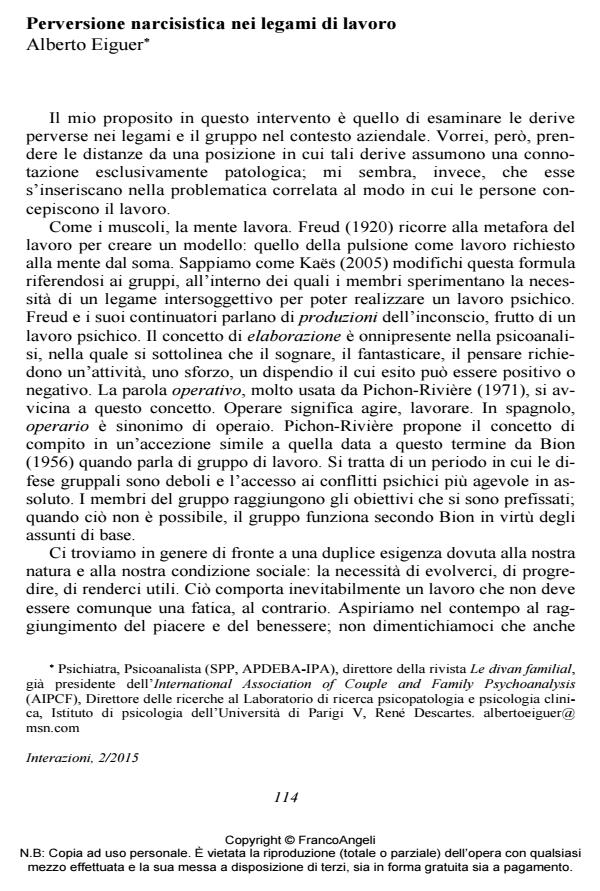The narcissistic perversion of relations in a work environment
Journal title INTERAZIONI
Author/s Alberto Eiguer
Publishing Year 2016 Issue 2015/2
Language Italian Pages 9 P. 114-122 File size 42 KB
DOI 10.3280/INT2015-002010
DOI is like a bar code for intellectual property: to have more infomation
click here
Below, you can see the article first page
If you want to buy this article in PDF format, you can do it, following the instructions to buy download credits

FrancoAngeli is member of Publishers International Linking Association, Inc (PILA), a not-for-profit association which run the CrossRef service enabling links to and from online scholarly content.
The author discusses the perverse drifts in links and groups that form in a work environment trying however to move away from the position that assumes that these trends are only pathological. Perverse drifts seem to be one of the problems deriving from how persons perceive work. In this perspective, the author examines the concept of work and the contribution of psychology to this debate presenting a case history and analyzing the perverse narcissistic links the can take shape in work environments, their consequences and their pathogenicity. Very interesting insights on this question are provided by therapeutic institutions.
Keywords: Link, narcissistic perversion, enterprise, institution of care, membership, appropriation of space and task
Alberto Eiguer, Perversione narcisistica nei legami di lavoro in "INTERAZIONI" 2/2015, pp 114-122, DOI: 10.3280/INT2015-002010